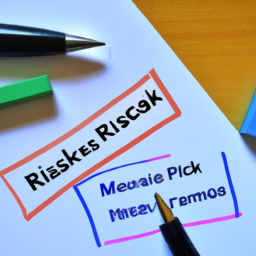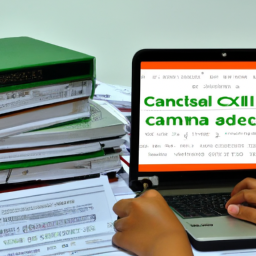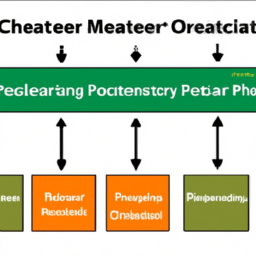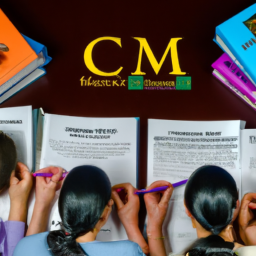Did you know that effective vendor selection is a crucial aspect of project procurement management? In fact, studies have shown that organizations that implement best practices for vendor selection experience higher project success rates. With so much at stake, it is imperative to establish clear criteria for vendor selection to ensure that the right vendors are chosen for your projects.
In this article, we will explore the best practices for project procurement management, specifically focusing on effective vendor selection. We will discuss the importance of conducting thorough evaluations, utilizing effective negotiation strategies, fostering strong communication and collaboration, and monitoring vendor performance. By following these best practices, you can enhance your organization’s procurement processes and increase the likelihood of project success.
So, whether you are a project manager, a procurement professional, or anyone involved in the vendor selection process, this article will provide you with valuable insights and practical tips to make informed decisions and improve your project outcomes.
Let’s dive in and discover the key to effective vendor selection in project procurement management.
Key Takeaways
- Clear criteria for vendor selection are essential for choosing the right vendors for projects.
- Thorough evaluations, negotiation strategies, communication, and monitoring are key practices for project procurement management.
- Regular updates, progress reports, and open communication with vendors are crucial for successful collaboration.
- Monitoring vendor performance and implementing continuous improvements in procurement processes lead to better project outcomes.
Establish Clear Criteria for Vendor Selection
Are you struggling to find the perfect vendor? Learn how to establish clear criteria for vendor selection and simplify your decision-making process.
To establish evaluation criteria, start by identifying the specific requirements and objectives of your project. Consider factors such as cost, quality, experience, and reputation. Clearly define your expectations for each criterion and prioritize them based on their importance to your project’s success.
By doing this, you can ensure that all potential vendors are evaluated on the same basis, making it easier to compare and select the best fit. Moreover, implementing vendor selection process improvements can enhance the efficiency and effectiveness of your decision-making. This may include streamlining the evaluation process, utilizing standardized evaluation forms, or involving key stakeholders in the decision-making process.
With a clear set of criteria and improved processes, you can confidently conduct thorough evaluations and make informed vendor selections.
Conduct Thorough Evaluations
When conducting thorough evaluations for vendor selection, it’s important to research potential vendors to ensure they align with your project requirements.
Evaluating the vendor’s track record and reputation will provide insight into their past performance and reliability.
Additionally, reviewing vendor proposals and contracts will enable you to assess their suitability and negotiate favorable terms.
Research potential vendors
While researching potential vendors, it’s important to conduct market research and assess their capabilities to ensure a successful partnership.
Start by gathering information on the vendor’s past performance and reputation. Look for any relevant case studies, testimonials, or reviews that provide insights into their track record. Consider their experience in similar projects and industries to gauge their expertise and ability to meet your project requirements.
Additionally, evaluate their financial stability and resources to ensure they can handle the scope of your project. By researching potential vendors thoroughly, you can make an informed decision and select a partner who aligns with your project objectives.
Moving forward, the next step is to evaluate the vendor’s track record and reputation, which will further solidify your decision-making process.
Evaluate vendor track record and reputation
To ensure a successful partnership, you’ll want to evaluate the track record and reputation of potential vendors. Start by assessing their pricing to ensure it aligns with your budget. It’s important to strike a balance between cost and quality.
Look for vendors who offer competitive pricing without compromising on the capabilities you require. Consider their past projects and client testimonials to gauge their track record. A vendor with a solid reputation and a history of delivering successful projects is more likely to meet your expectations.
Additionally, evaluate their capabilities by reviewing their portfolio and talking to their previous clients. This will give you a better understanding of their expertise and whether they can meet your project requirements.
Once you have evaluated the track record and reputation of potential vendors, it’s time to review their proposals and contracts.
Review vendor proposals and contracts
Consider delving into the details of vendor proposals and contracts to ensure a seamless partnership, as it’s akin to unraveling the intricate threads of a tapestry that will shape your project’s success.
During the vendor selection process, carefully review each proposal to understand the vendor’s approach, capabilities, and pricing. Look for alignment with your project goals and requirements.
Pay close attention to the contract terms and conditions, ensuring they protect your interests and establish clear expectations. Scrutinize deliverables, milestones, and payment terms to avoid any surprises down the road.
Effective contract negotiation is crucial to establishing a fair and mutually beneficial agreement. By reviewing vendor proposals and contracts thoroughly, you can make well-informed decisions and set the foundation for a successful partnership.
As you move forward, utilizing effective negotiation strategies will further strengthen your position and enhance collaboration with the chosen vendor.
Utilize Effective Negotiation Strategies
Make sure to leverage effective negotiation strategies when selecting vendors for your project procurement management, as this can greatly enhance your chances of securing favorable terms and conditions. Effective negotiation techniques are essential in establishing successful vendor partnerships.
Start by thoroughly understanding your project’s requirements and goals, as well as the vendor’s offerings and capabilities. This will enable you to identify areas where negotiations can result in mutual benefits.
Prioritize open and honest communication, as this will foster a collaborative environment and build trust with potential vendors. Additionally, be prepared to compromise and find win-win solutions that meet both parties’ needs.
By utilizing these strategies, you can ensure that the vendor selection process is not only efficient but also maximizes the value and success of your project. Foster strong communication and collaboration by maintaining regular communication channels and establishing clear expectations from the beginning.
Foster Strong Communication and Collaboration
To foster strong communication and collaboration with vendors, it’s essential to establish open lines of communication, ensuring that both parties are easily accessible and responsive.
Maintaining regular updates and progress reports is key to keeping everyone informed and on track.
Additionally, addressing any issues or concerns in a timely manner helps to prevent escalation and maintain a productive working relationship.
Establish open lines of communication with vendors
Establishing open lines of communication with vendors is like building a sturdy bridge that connects your project to their expertise and resources. It is crucial to establish trust and manage expectations from the beginning. By fostering an environment of open and honest communication, you can build a strong relationship with your vendors.
This includes setting clear expectations for deliverables, timelines, and any potential challenges that may arise. Regular check-ins and updates will help ensure that both parties are aligned and working towards the same goals. Maintaining open lines of communication allows for effective problem-solving and the ability to address any issues or concerns in a timely manner.
By doing so, you can maintain a positive working relationship with your vendors and ensure the success of your project.
Maintain regular updates and progress reports
Ensure that you consistently provide regular updates and progress reports to keep all parties involved informed and engaged in the ongoing developments of the collaboration. Regular updates and progress reports are essential for maintaining effective communication with vendors throughout the project procurement process.
By providing updates, you can keep vendors informed about any changes or developments that may impact their work or the overall project timeline. Progress reports allow vendors to track their progress and ensure that they are meeting the project’s objectives and deadlines.
These updates and reports also provide an opportunity for vendors to provide feedback, address any concerns, and make adjustments if necessary. By consistently sharing updates and progress reports, you can foster a collaborative and transparent working relationship with vendors, ultimately leading to successful project outcomes.
Moving forward, it’s important to address any issues or concerns in a timely manner.
Address any issues or concerns in a timely manner
Addressing issues or concerns promptly is crucial for maintaining a successful collaboration, as research shows that 70% of projects that encounter delays or problems can be traced back to unresolved issues that were not addressed in a timely manner. Timely resolution of issues ensures that the project stays on track and minimizes the risk of further complications. Effective communication plays a key role in this process, as it allows for a clear understanding of the concerns and enables prompt action. To facilitate this, it is important to establish a communication protocol that outlines the appropriate channels and expected response times. Additionally, maintaining regular updates and progress reports helps identify any emerging issues and provides an opportunity to address them promptly. By addressing issues or concerns in a timely manner, you can foster a collaborative environment that promotes efficiency and successful outcomes. Moving forward, it is important to monitor vendor performance to ensure continued success in the project.
Monitor Vendor Performance
Monitoring vendor performance is crucial for effective project procurement management. By regularly evaluating vendor performance, you can ensure that they’re meeting the project’s requirements and delivering high-quality work. Here are five key reasons why vendor performance monitoring is important:
- Identifying and addressing any issues or concerns promptly.
- Ensuring that vendors adhere to timelines and deliverables.
- Tracking the quality of work and highlighting areas for improvement.
- Assessing the vendor’s ability to meet project objectives and goals.
- Building stronger relationships with vendors and fostering collaboration.
Regularly monitoring vendor performance allows you to identify any potential problems early on and take corrective actions. It also helps you maintain transparency and accountability in the procurement process. By continuously evaluating and improving vendor performance, you can streamline procurement processes and ensure successful project outcomes.
Continuously Improve Procurement Processes
To improve your procurement processes continuously, you must actively seek feedback from vendors and stakeholders to identify areas of potential enhancement and implement strategic changes for better project outcomes. By continuously improving your procurement processes, you can improve efficiency and streamline your overall operations. One effective way to do this is by implementing a feedback mechanism that allows vendors and stakeholders to provide their input on the procurement processes. This feedback can help you identify any bottlenecks or inefficiencies in the processes, allowing you to make the necessary adjustments to streamline them. Additionally, it is important to regularly review your procurement processes and identify any areas for improvement. This could include automating certain tasks, simplifying approval processes, or optimizing communication channels. By continuously improving your procurement processes, you can ensure that your organization is operating at its highest level of efficiency and effectiveness.
| Improve Efficiency | Streamline Processes | Seek Feedback | Implement Changes | ||
| Regularly review processes for inefficiencies | Automate tasks to reduce manual effort | Actively seek feedback from vendors and stakeholders | Implement strategic changes based on feedback | ||
| Identify bottlenecks and areas for improvement | Simplify approval processes for faster decision-making | Establish a feedback mechanism for continuous improvement | Streamline communication channels for better collaboration | ||
| Optimize procurement workflows for better outcomes | Improve data management and reporting capabilities | Use feedback to identify areas of potential enhancement | Enhance procurement processes to improve project outcomes | ||
| Implement technology solutions for process optimization | Standardize processes and eliminate redundancies | Incorporate feedback into procurement strategies | Continuously monitor and evaluate the effectiveness of changes | to ensure continuous improvement and adaptability in procurement practices. |
Frequently Asked Questions
How can we ensure that the selected vendor meets our specific project requirements?
To ensure that the selected vendor meets your specific project requirements, it is crucial to conduct a thorough vendor evaluation. Start by clearly defining your project requirements, including deliverables, timelines, and budget constraints.
Then, create a detailed evaluation criteria that aligns with these requirements. Evaluate potential vendors based on their experience, capabilities, references, and track record.
Additionally, consider conducting interviews or site visits to further assess their suitability for your project.
What are some common challenges faced during the vendor selection process and how can they be addressed?
Addressing challenges and overcoming obstacles during the vendor selection process is crucial for successful project procurement.
Common challenges include lack of vendor transparency, difficulty in assessing vendor capabilities, and managing multiple vendors.
To address these challenges, establish clear evaluation criteria, conduct thorough due diligence, and engage in open communication with vendors.
Additionally, utilizing vendor management software can streamline the process and ensure effective collaboration.
By proactively addressing these challenges, you can enhance the vendor selection process and increase the likelihood of meeting your project requirements.
Are there any legal or ethical considerations to keep in mind when selecting a vendor?
When selecting a vendor, it’s important to consider legal and ethical considerations.
From a legal standpoint, you should ensure that the vendor complies with all applicable laws and regulations. This includes verifying their licenses, permits, and certifications.
Ethically, you should assess the vendor’s reputation and track record for ethical business practices. Look for any past issues or controversies that may raise red flags.
By considering both legal and ethical factors, you can make a more informed decision when selecting a vendor.
How can we effectively manage and address conflicts that may arise during the vendor selection process?
To effectively manage conflicts during vendor selection, it is important to prioritize stakeholder engagement and conflict resolution. According to a study by the Harvard Business Review, 85% of conflicts in the workplace stem from poor communication and lack of stakeholder involvement.
Ensure all stakeholders have a voice and actively listen to their concerns. Implement clear conflict resolution processes, such as mediation or negotiation, to address conflicts promptly and maintain a positive vendor selection process.
What are some best practices for evaluating vendor performance on an ongoing basis?
To effectively evaluate vendor performance on an ongoing basis, you can utilize various vendor evaluation techniques. One important aspect is identifying and tracking key performance indicators (KPIs) for vendor assessment.
These KPIs could include metrics such as on-time delivery, quality of goods or services, adherence to contract terms, and responsiveness to issues. Regularly reviewing and analyzing these KPIs will provide valuable insights into the vendor’s performance and help ensure that they meet your expectations and deliver on their commitments.
Conclusion
In conclusion, effective vendor selection in project procurement management is crucial for success.
By establishing clear criteria, conducting thorough evaluations, and utilizing effective negotiation strategies, you can ensure the best possible outcome for your project.
Fostering strong communication and collaboration, and monitoring vendor performance are also key factors in achieving success.
Remember, the success of your project hinges on the quality of your vendors, so don’t underestimate the importance of these best practices.
Implement them with precision and watch your project soar to new heights!



















